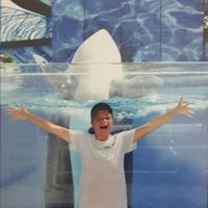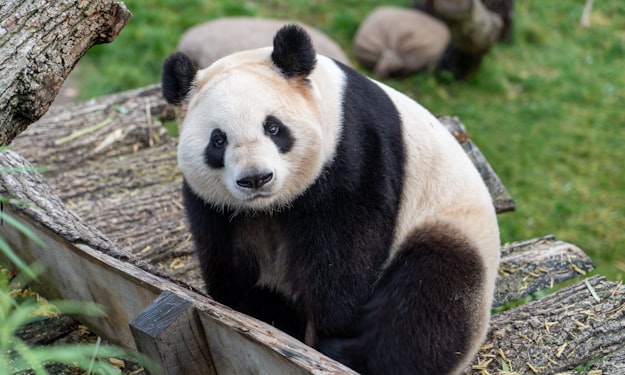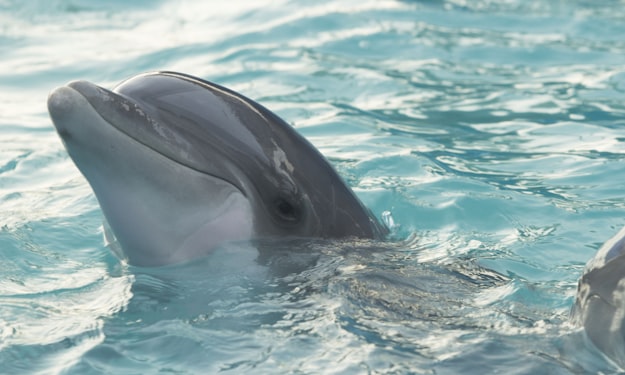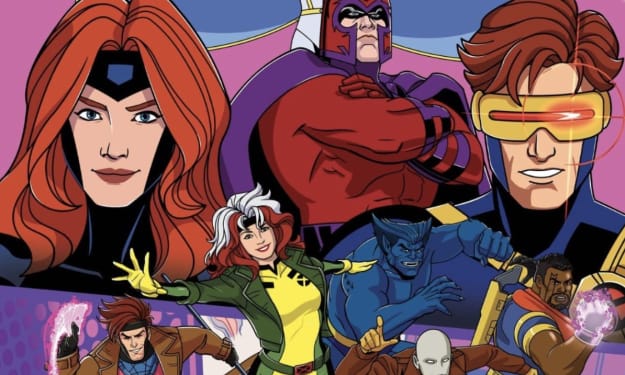
Jenna Deedy
Bio
Zoo and Aquarium Professional, Educator, Cosplayer, Writer and B.A. in Psychology whose got a lot to share when it comes to animals, zoos, aquariums, conservation, and more.
Instagram: @jennacostadeedy
Stories (137/0)
Star Wars: Outlaws Backlash Reinforces Sexism In The Video Game Community
On April 9th, 2024, Ubisoft released an intriguing trailer for its upcoming Star Wars game titled Outlaws via YouTube and other social media platforms. Set between the events of Empire Strikes Back and Return of the Jedi, Outlaws centers around Kay Vess, a young, determined, and intrepid character seeking freedom to embark on a new chapter in her life alongside her trusted companion, Nix. However, to achieve this, she must navigate the treacherous underworld of the galaxy's criminal syndicate, relying on her wit, cunning, and combat skills to become one of the most notorious figures in the galaxy.
By Jenna Deedy6 days ago in Geeks
Five Underrated Mandalorians and Concept Designs for Cosplay
Within the vast realm of Star Wars, the Mandalorians hold a prominent position in the ranks of popular cosplay subjects. For over a decade, as a dedicated cosplayer, I have experienced great excitement upon encountering novel characters and character designs at conventions attended with my sister and friends. These endeavors exemplify the beauty of the art form, not only in bringing characters to life through the eyes of talented artists, but also in sparking immense joy among children and families who cherish the opportunity to see their beloved characters materialize. Moreover, witnessing the creative interpretations and personal touches that cosplayers infuse into their designs is a captivating spectacle on social media. Among the most frequently portrayed characters, I have observed Bo-Katan Kryze, Sabine Wren, Padme Amidala, Ahsoka Tano, Hera Syndulla, and Duchess Satine Kryze. These portrayals serve as a testament to the dedication and artistry of the individuals who bring these characters to life.
By Jenna Deedy9 days ago in Geeks
There Was Always a Female Silver Surfer
In April, Disney's forthcoming Fantastic Four film reboot revealed several unanticipated casting choices. The movie will connect to the Marvel Cinematic Universe, but set in an alternate 1960s. Pedro Pascal as Reed Richards, Vanessa Kirby as Susan Storm, Joseph Quinn as Johnny Storm, and Ebon Moss-Bachrach as Ben Grimm were among the notable decisions, stirring both anticipation and debate among enthusiasts.
By Jenna Deedy18 days ago in Geeks
Right Whale Mother’s Death Raises Concerns About Vessel Strikes
On March 30th, 2024, off the coast of Virginia, marine researchers regretfully discovered the deceased body of "Catalog #1950," a 35-year-old North Atlantic right whale mother, shortly after giving birth to her sixth calf. This tragic incident marks the fourth documented mortality of a North Atlantic right whale in United States waters this year.
By Jenna Deedy21 days ago in Petlife
Orca: Two Different Species?
For several decades, researchers have acknowledged the existence of three distinct killer whale ecotypes in the world's oceans: the fish-eating residents, the mammal-eating transients, and the offshore killer whales that feed primarily on sharks in the open ocean. In the Pacific Northwest, researchers have extensively studied both resident and transient killer whale populations, particularly their cultural practices related to hunting. Recently, there has been a scientific debate about whether these two killer whale populations belong to the same species but exhibit different hunting abilities or make up separate species. A new study published in The Royal Society Open Science on March 27, 2024, suggests that these two killer whale populations may indeed be distinct species.
By Jenna Deedy23 days ago in Petlife
Giant Pandas to Resume Presence in United States Zoos
In November 2023, the prestigious National Zoo returned its three remaining giant panda residents to their ancestral home in China, marking the end of a five-decade-long legacy. Atlanta's Zoo is now the only American institution to house a giant panda family, but this loan is expected to conclude within the year, requiring the return of the four endangered bears to China. This would be the first time since 1972 that no American zoo has housed giant pandas, signaling a turning point in panda diplomacy.
By Jenna Deedyabout a month ago in Petlife
Revan: Most Powerful Sith in “Star Wars” History?
Among them, Darth Vader, formerly known as Anakin Skywalker, stands out as a mighty Force-sensitive being. His precise lightsaber techniques and ability to predict his opponents' moves have brought him renown. Vader's prowess has allowed him to defeat skilled adversaries, such as Jedi, making him one of the most potent Sith in history.
By Jenna Deedyabout a month ago in Geeks
The Exploration of Kitty Pryde's "Star-Lord" Narrative in Marvel's "Future Fight" Game
During the pandemic lockdown, I discovered various non-cosplay activities to keep my mind engaged. These included reading comics, writing, watching shows on Disney+, and playing Marvel's Future Fight, a mobile game.
By Jenna Deedyabout a month ago in Geeks
Can We Please Have Doctor Doom Be Played By A Romani Actor?
Considering recent casting news surrounding the upcoming reboot of Disney's Fantastic Four film, which will be part of the Marvel Cinematic Universe, there have been widespread rumors regarding the potential introduction of the iconic villain Doctor Doom. These rumors have sparked a wave of fan casting suggestions, with actors such as Giancarlo Esposito, Cillian Murphy, and Henry Cavill being frequently mentioned. However, a notable aspect of these suggestions is the conspicuous absence of actors of Romani descent.
By Jenna Deedy2 months ago in Geeks
Responding to Reception for My X-Men Article
On February 16, 2024, I published an article titled "X-Men Has Always Been 'Woke'" on Vocal. It addressed the controversy surrounding the portrayal of a non-binary character in a Disney show. The article highlights the X-Men's history of storytelling that tackles social justice and human rights issues, which has been a fundamental part of its identity since the 1960s. While the article received positive feedback from Marvel fans who appreciated the exploration of these themes, there were those who insisted that Disney shouldn't tell politically driven storylines, dismissing them as "woke."
By Jenna Deedy2 months ago in Geeks
National Aquarium’s “Sanctuary” Plan Problematic?
The National Aquarium in Baltimore has been a home for Atlantic bottlenose dolphins since the 1980s. It currently serves as a home to six dolphins who take part in daily training and feeding sessions six times a day. Lessons and knowledge are both taught and tested with rewards given to them by their trainers at the end of each session. Yet, the trainers are part of their pod. Since 2016, the trainers have been preparing them for life in a marine sanctuary that would be located somewhere in the Caribbean. However, there is one problem: the sanctuary has yet to be built, and plans for its construction seemed mired in logistical problems.
By Jenna Deedy2 months ago in Petlife
Newsflash: X-Men Has Always Been “Woke”
During the unprecedented global shutdown caused by the COVID-19 pandemic, I sought solace in the world of television. Among the shows that caught my attention was the original X-Men: The Animated Series. Along with Star Wars: The Clone Wars, it became a nightly ritual for me to watch three episodes on Disney+ before retiring to bed. This routine provided a much-needed escape from the stress of the day, during which I was preoccupied with planning and writing articles, including a series of interviews.
By Jenna Deedy2 months ago in Geeks













